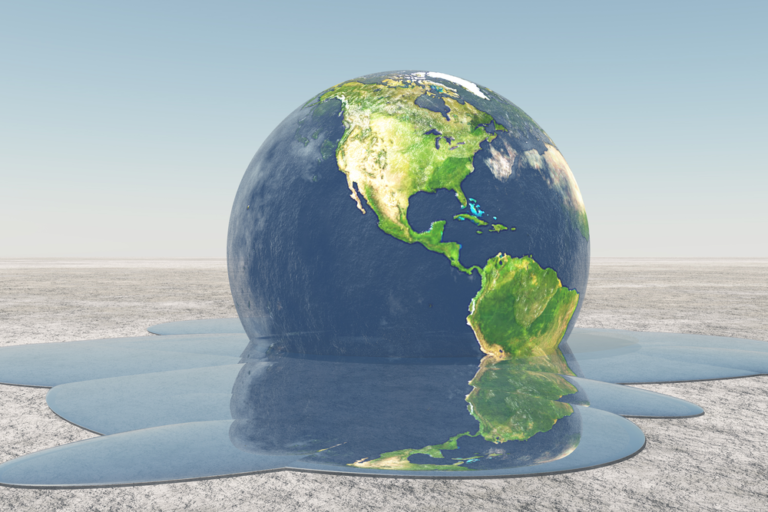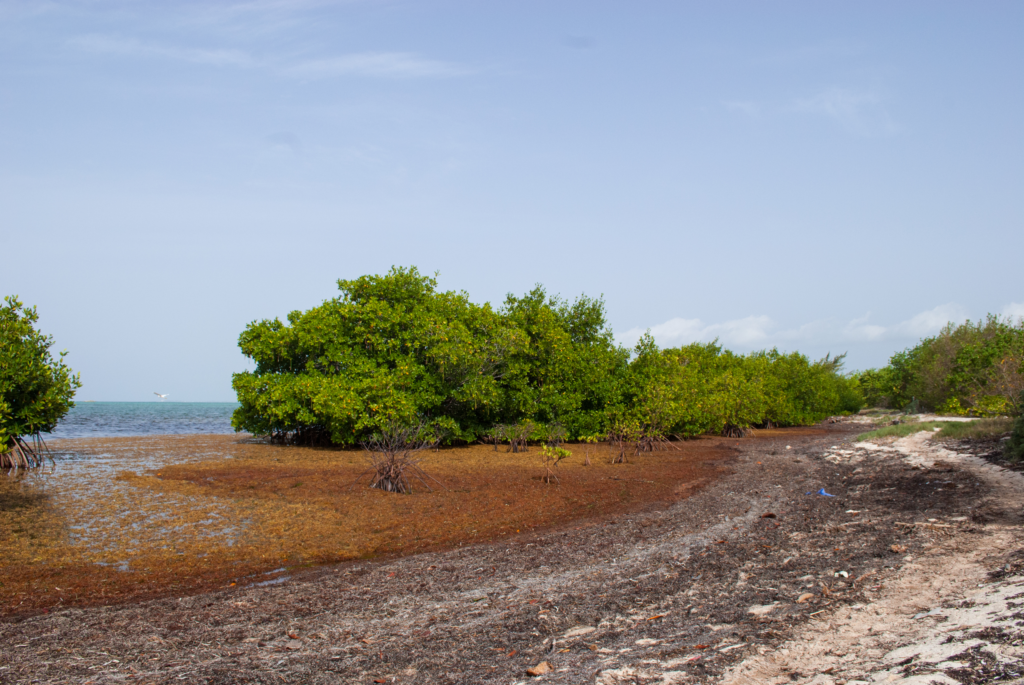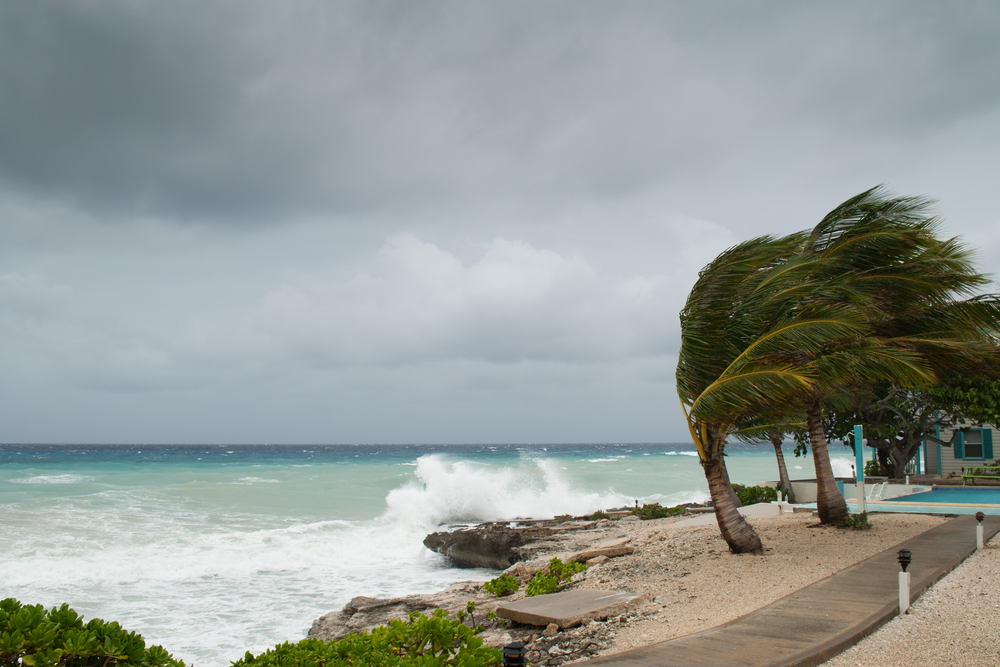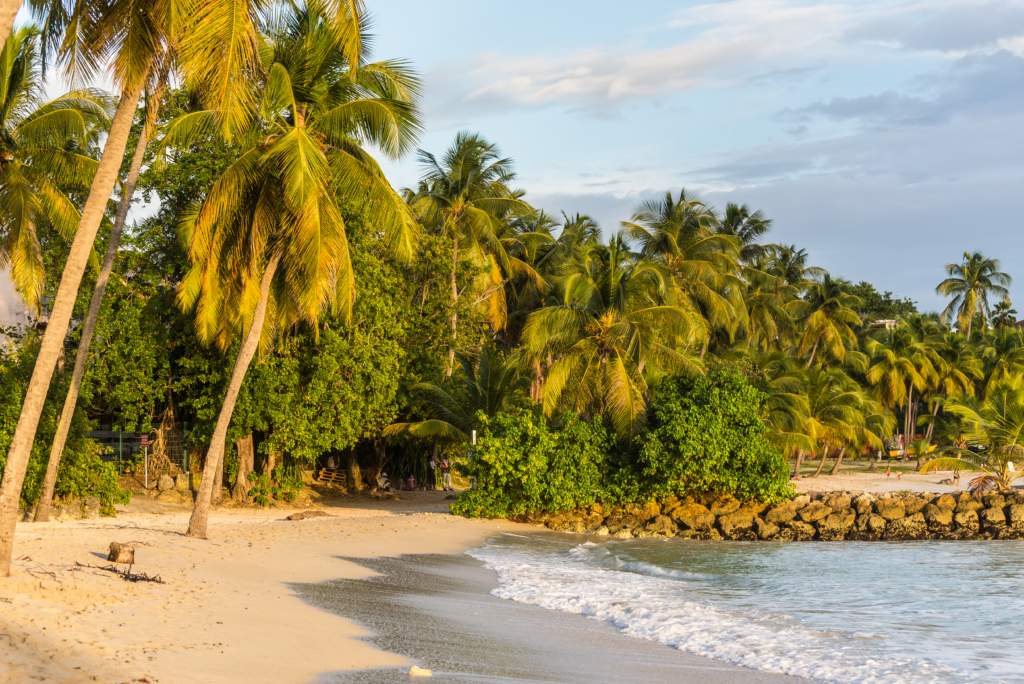
Climate Change is a topic that should, in theory, seem like a straightforward matter. Yet in reality, it is a puzzling source of controversy, mired in a heavily politicised and ideological storm of debate.
One can spend considerable time dissecting the various points of contention however, for those such as us in the Caribbean, we simply lack this luxury. For the developed, prosperous and economically influential global power, addressing climate change becomes more a matter of restricting or at least regulating the economic activity underpinning their dominance. Whereas, for the quintessential Caribbean nation it takes the form of a far more serious need to secure our very future survival.

An Argument For Regional Determinism
A recent Climate Change Summit involving Australia and various Pacific island states best underscores this point. The islands, with their extremely vulnerable position and greater likelihood to be affected by rising sea levels and shocks to their tropical marine and land-based ecosystems were firm in their request for action. On the other hand, Australia, a developed nation heavily dependent on industries such as coal, raw mineral extraction and manufacturing, went as far as accusing the Pacific nations of attempting to subvert and destroy their economy.
The Australian Deputy PM controversially proclaimed that the ‘Pacific nations will survive climate change because they pick our fruit’ according to reports from the Guardian UK. Other developing economic giants such as China and India that seek to achieve prosperity and influence on par with Western Great Powers also view many environmental reforms as inhibitors on their competitiveness.
Consequently, the Caribbean region’s odds in this matter are not far removed from those of its sister isles in the Pacific. Thus, with action from economically powerful nations being heavily dependent and unpredictably reliant on which political party holds the reins of power or otherwise, it falls on the small island developing nation to innovate in safeguarding themselves from the impacts of climate change. Indeed, dependence on our larger neighbours for succor will likely end poorly for us. As such, the Caribbean, much like the Pacific islands, would do well to come together regionally on this issue and attempt to work as a vocal and unified bloc.

Prepare For Economic Shocks
Almost every economic or geopolitical analysis for the Caribbean region underscores one key point. That is, the vulnerability which arises from an over-dependence on economic monoculture. Depending on the island in question this either takes the form of tourism or raw industry (in the case of Jamaica and TT). Furthermore a 2017 report from the UN Educational, Scientific and Cultural Organization notes that a lack of energy independence further accentuates the risky state of things. To this end, a concerted effort towards implementing various sources of renewable energy generation is a must.
For example, rising sea levels and higher temperatures are projected to further the destruction of biodiversity-rich coral reefs, fishing prospects as well as coastal settlements and economic activity. Furthermore, it’s a region already plagued by yearly hurricanes and storms with climate change projected to increase the erratic and destructive nature of these weather phenomena. Diversity both in energy generation and revenue earning will allow a SID (Small Island Developing State) to better cope with sudden and unpredictable economic shocks.
Naturally, economic diversification into areas such as ICT investment would also assist in the process of integrating renewable energy and climate change fighting measures.
Developing A Proactive Rather Than Reactive Culture
With its close proximity to the US and historic ties to various European countries, the Caribbean is not known for taking the initiative. Indeed, many of the suggestions outlined above come at the behest of foreign rather than local entities. Many moves to safeguard against climate change, achieve affordable energy independence or otherwise have only gained momentum because of foreign assistance, funding and pressure from international organizations such as the UN and EU. This culture, be it among the public and private fronts, needs to change now.
Citizens must begin to press their politicians on the growing realities of climate change and regional leaders must seize the initiative and inform their citizenry of this as well. There is no shortage of brilliant minds in the Caribbean so to say we’re unable to innovate on our own would be, put simply, rubbish. Additionally, a proactive approach would allow more efficacious action with funding from private and public sources rather than reliance on international aid and development funds.
Infrastructural Preparation
Although we may not actively consider or pay much attention to it, phenomena such as coastal erosion and increased flooding are growing realities for the Caribbean. Many settlements across the various islands are both built near or on the coast while simultaneously being below sea level. In a world where sea levels are rising and freak weather activity is increasingly common, this presents an intrinsic long term threat to the Caribbean community’s very existence. Projects as simple as building modern sea walls or wave energy dispersal elements can work wonders against coastal erosion, particularly near urban areas along the coast. Utilities such as revetments containing tripods, groynes and ‘rock armour’ can all assist in this process. In fact, such projects can even be integrated with wave energy capture initiatives as a means of extracting renewable energy.

While the current impacts of climate change are, at present, only gradually emerging each day, this is no excuse to rest on our laurels. The Caribbean is at a key turning point in its future and only we can decide it. A quick glance at this year’s large scale fires in the Amazon Rainforest has demonstrated an almost muted or at best, lethargic response by the international community. Compared to the immediate outpouring of support when, say, Notre Dame was burnt, the Amazon disaster has received only a fraction of that attention. The vast tonnes of released carbon from such events and long term climatological implications have yet to hit.
Now is the time to prepare, not debate.